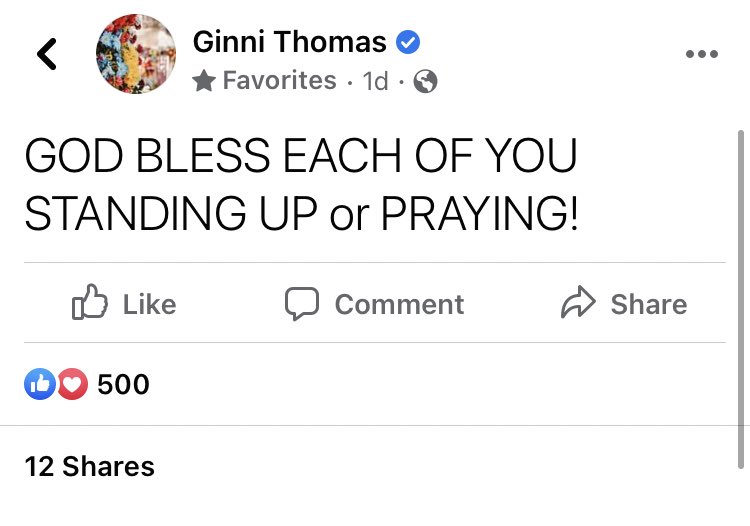On the morning of Jan. 6, Ginni Thomas—wife of Supreme Court Justice Clarence Thomas—endorsed the protest demanding that Congress overturn the election, then sent her “LOVE” to the demonstrators, who violently overtook the Capitol several hours later. She has not posted since. 



For background, Ginni Thomas is a conservative lobbyist and avid Trump supporter who campaigned for him. She also routinely spreads fringe conspiracy theories on Facebook. She recently posted: “No one, and I mean no one, has done more to harm America than the Democrats.” 







Here, for instance, is a characteristic Ginni Thomas post. She has repeatedly (and falsely) warned that George Soros is funding a sweeping conspiracy against Donald Trump and the United States government.
https://twitter.com/mjs_DC/status/1316384721807515649
In July, Ginni Thomas shared this post from a Facebook group flagged for promoting anti-vax conspiracy theories, including the false claim that Bill Gates would use the COVID vaccine to kill people.
https://twitter.com/mjs_DC/status/1284613136339931137
Ginni Thomas also led a campaign to identify and oust federal employees whom she deemed disloyal to Trump. She met with the president at the White House to provide him with a list of names she compiled. nytimes.com/2020/02/24/us/…
Ginni Thomas is often treated like a joke because she continually spouts deranged conspiracy theories. But there's nothing funny about a sitting justice's spouse endorsing a protest meant to overturn an election—hours before it became an insurrection. slate.com/news-and-polit…
Wow: Ginni Thomas appears to have deactivated or deleted her Facebook page. Truly never thought I’d see the day. lawandcrime.com/high-profile/g…
• • •
Missing some Tweet in this thread? You can try to
force a refresh











